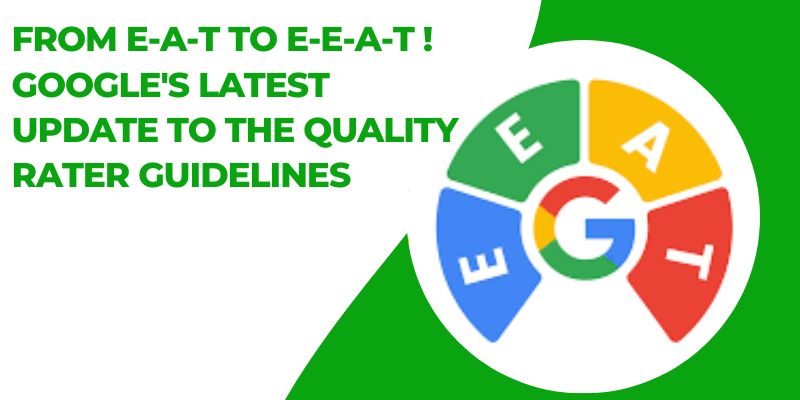Google, the world’s most widely used search engine, recently announced a major change in its SEO strategy by switching from EAT to EEAT.
EAT stands for Expertise Authoritativeness and Trustworthiness and has been used by Google to evaluate the quality of websites and content.
But now, Google has added an important new criterion: User Experience (UX). This change was recently announced in mid-December 2022 by Google, where the company stated that UX will play an even more important role in search results in the future.
Background of this algorithm change
Over the past few years, SEO (Search Engine Optimization) has evolved considerably.
Search engines, and especially Google, have implemented increasingly sophisticated algorithms to favor quality websites. Thus, it has become increasingly difficult to cheat to obtain favorable search results.
Among the most important criteria for indexing and ranking a website, we find the famous EAT (Expertise, Authority, Trust).
In fact, Google’s EAT algorithm is used to evaluate YMYL sites and ensure that they meet the required high-quality standards.
YMYL (Your Money Your Life) is a term used by Google to describe websites that have a significant impact on users’ finances or financial security. These types of sites are considered to be of high importance to users and therefore have higher quality requirements in terms of content and inbound links.
YMYL sites are subject to more rigorous scrutiny by Google to ensure that they provide reliable and accurate information, with quality inbound links from trusted sources.
So, recently, Google decided to change from EAT to EEAT (Expertise, Authority, Trust, User Experience). This update aims to take into account the user experience for the referencing of websites using the reviews and ratings of quality raters.
The information collected by quality raters is used to improve Google’s search algorithm and to ensure that the most relevant and useful results appear at the top of the search results pages.
What implications for website owners and SEO professionals?
This change has important implications for website owners and SEO professionals. They now need to ensure that their website offers a quality user experience to stay competitive in search results.
This means that their website must be easy to navigate, fast to load, and responsive to mobile devices. Website owners will also need to ensure quality content, which means providing content that is relevant, useful, and meets the needs of users.
In addition to that, SEO professionals will have to check if the websites they optimize comply with Google’s UX quality standards.
This means that they will have to work closely with design teams, development teams, and content creators with a high level of expertise to ensure that the website provides a quality user experience while ensuring that data is secure.
How to meet the EEAT (Expertise, Authority, Trust, User Experience) criteria
Indeed, Google wants to favor websites that offer a pleasant and satisfying user experience, based on the personal experience of users.
This includes taking into account the speed of loading web pages, ease of use, and quality of presentation of content.
It is therefore important to focus on the user experience to improve its SEO on Google. Here are some tips to achieve this:
- Optimize page load speed: it is important that your website pages load quickly so as not to frustrate users.
- Improve usability: it is important that users can navigate easily on your website. So take care of the ergonomics and navigation of your website.
- Take care of the presentation of the contents: it is important to take care of the presentation of the contents to facilitate readability and comprehension. Respect the rules of typography and layout. Also, favor images and videos to add value to the content.
Conclusion
SEO is constantly evolving and it is therefore important to adapt to continue to be well-indexed on Google.
The EEAT criteria (Expertise, Authority, Trust, User Experience) are now important for referencing on Google, as well as the management of personal data, the presence on social networks, and quality content created.
Read more on Google
